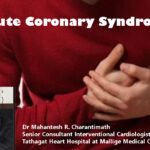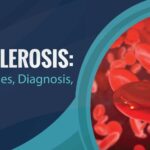Calcium deposits in coronary arteries are early sign of heart trouble. Doctors recommend that all adults must get their heart checked for calcium deposits once a year through the heart calcium-score screening test.


Increasing presence of calcium deposits in coronary arteries will gradually lead to their narrowing down, triggering a heart attack if preventive measures are not taken. Everyone above the age of 18, especially those with a family history of heart blockage, should undergo the calcium-score screening heart test once a year.
A calcium-score screening heart test, also called coronary calcium scan, uses Computerized Tomography (CT) to detect calcium deposits in coronary arteries. Ultra-low dose CT scan can detect coronary calcium score. It takes roughly five minutes and uses only 1/50th radiation of a conventional CT scan.
The scanner takes multiple pictures of the heart in thin sections, which are then combined to produce a view that reveals calcium deposits as white specks. The machine’s software then calculates a score based on the amount of calcification. Any score above zero indicates the presence of plaque. we are currently seeing a 20% positive rate for heart calcium among people getting themselves tested. This means that one in five people carry calcium deposits in their heart arteries, which will gradually keep increasing if nothing is done.
High risk of heart attack or any other heart disease
The calcium score reflects the total area and density of calcium deposits in heart arteries. A score of zero means no calcium is seen in the heart, translating to a very low chance of heart attack in the future. When calcium is present, the higher the score, the bigger is the risk of heart disease. A score of 100 to 300 indicates moderate plaque deposits and is associated with a relatively high risk of heart attack or any other heart disease over the next 3-5 years. A score greater than 300 is a warning sign of extremely high risk of disease and heart attack.
A change in lifestyle is necessary
If the calcium score is high, you have to consult a cardiologist for specific treatment. A change in lifestyle is necessary, apart from taking recommended medicines. I advise people to continue moderate exercise but not do vigorous exercise. The more you exercise, the stronger your heart gets, which lowers the risk. Eat healthy foods such as whole grains and reduce the intake of refined foods and sugar. Smoking and excessive consumption of alcohol increase the risk of heart problems. High cholesterol levels play a major role in causing plaques in your heart, hence controlling intake of oily, fried food and cholesterol rich foods will also help reduce your risk of heart attacks.
In 2016, the estimated prevalence of cardiovascular diseases (CVD) in India was 54.5 million. Mortality associated with CVD in Indians is 20–50% higher than any other population. CVDs contributed to 28% of total deaths in the country in 2016.
![]()
![]()


Dr. Tausif Ahmed Thangalvadi
Medical Director
NURA diagnostic centre











